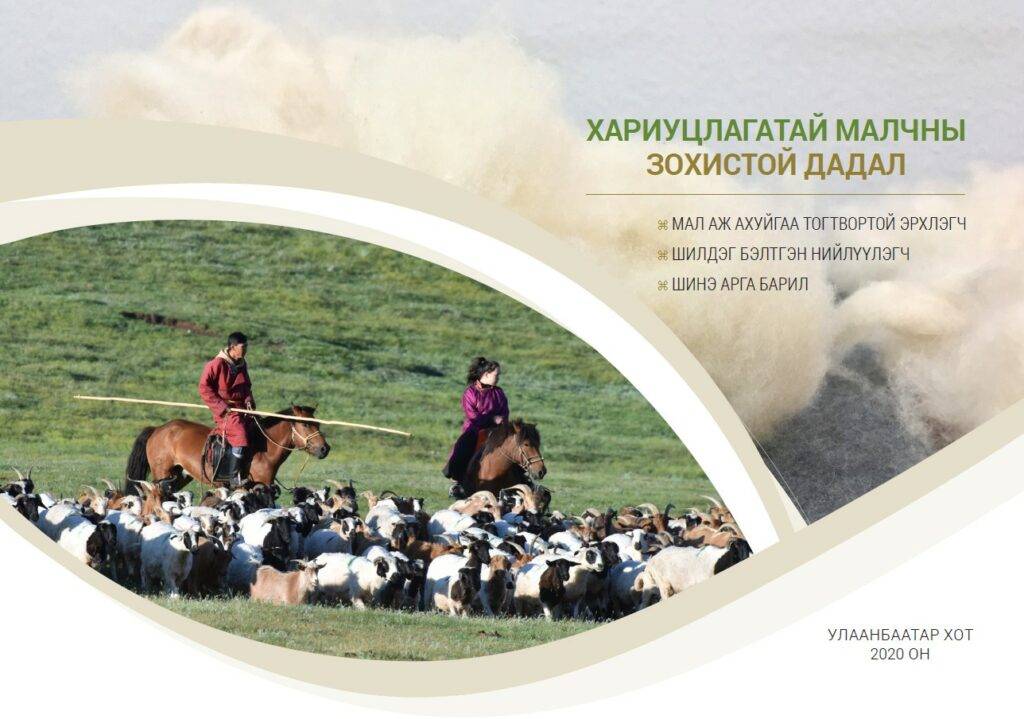Access to finance for herder communities in Mongolia: A long-term strategic partnership between SFA and Khan Bank


Mongolia’s vast rangelands are home to nomadic herder communities who play an essential role in preserving the country’s cultural heritage and economy, particularly through the cashmere industry. However, these herders face persistent financial barriers, notably in accessing the credit necessary to sustain and grow their livelihoods. The broader economic strain is evident in Mongolia’s household debt, which accounts for approximately 25% of the nation’s Gross Domestic Product or GDP1, placing a disproportionate burden on rural herders. This vulnerability is exacerbated by climate change and increasingly volatile cashmere markets, further heightening herders’ financial precarity2. The sale of cashmere, especially in early spring when other livestock sales are limited, remains a crucial income stream for herding households. However, the industry’s notorious price volatility significantly undermines herders’ ability to secure a stable income, highlighting the pressing need for more accessible and sustainable financial support systems.
In response to these challenges, the Sustainable Fibre Alliance (SFA) and Khan Bank, a Mongolian national bank, joined forces with an aim to address the financial difficulties faced by Mongolian herders. Over the past six years, Khan Bank and the SFA have developed a pioneering partnership through a series of initiatives, training sessions, and innovative financial solutions. This article outlines the key milestones of this partnership, from its inception in 2018 through to the successful establishment of the “Green Loan” program in 2022 and ongoing support and collaboration in 2024 and beyond.
2018: Laying the Groundwork for Collaboration

- In September 2018, Khan Bank and the SFA formalised their collaboration by signing a Memorandum of Understanding (MoU) to develop loan products tailored to the needs of SFA-certified herders and cooperatives and to organise basic financial training for them.
- In November 2018, SFA and Khan Bank in collaboration with Nutag Action Research and Training Center (NARTC), carried out comprehensive research to assess the financial needs of stakeholders in Mongolia’s cashmere processing sector through a household survey of 286 herder families and 51 key-informant interviews to understand the financial challenges faced by herders.
- In December 2018, a “Train the Trainers” course was organised, reaching over 50 herders from 24 cooperatives across eight provinces. These trainings focused on the SFA’s Animal Husbandry and Cashmere Fibre Harvesting Code of Practice and Rangeland Stewardship Code of Practice.
2019: Expanding Reach & Influence
- In May 2019, Khan Bank participated as a sponsor in the SFA’s annual international conference, “Cashmere Preparation, Supply Chain, and Sustainable Development” further establishing its commitment to supporting the sustainable cashmere sector
- By July 2019, the “Herder Empowerment Program” was launched in 26 districts across 10 provinces. This initiative aimed to provide herders with the knowledge and tools necessary to implement sustainable livestock management practices while increasing the efficiency of the cashmere value chain.

- In November 2019, an online training course was conducted for Khan Bank employees, including branch and communication managers, to enhance their understanding of the SFA Codes of Practice.
- As the year came to a close, the SFA and the Khan Bank jointly broadcast a series of 10 advice programs on the theme of “Responsible Herders” on the TV9 channel.
2020: Empowering Responsible Herders

- The partnership continued into 2020, with the publication of a brochure titled “Proper Practices of Responsible Herders” to disseminate crucial information on appropriate animal husbandry practices that are welfare-friendly and sustainable.
2021: Responding to the COVID-19 Crisis
As the world grappled with the effects of the COVID-19 pandemic in 2021, Khan Bank introduced new measures to support herders. They provided preferential loans to member cooperatives of the SFA as part of an action plan designed to mitigate the impact of the pandemic. These loans helped herders sustain operations during a challenging period while maintaining their commitment to sustainability.

2022: Launching the Green Loan Program

- Khan Bank introduced the green loan program “Supporting the Supply of Sustainable Wool and Cashmere”, under which a total of 37 cooperatives that operate under the SFA’s Animal Husbandry and Rangeland Stewardship Codes of Practice and have obtained SFA certification were selected, and 3.8 billion MNT in loans were granted to 19 of these cooperatives.
- By July 2022, the collaboration expanded its efforts by hosting a “Business Development of Herder Organizations” event, involving over 90 herders representing 54 cooperatives.
- A video was released in August 2022, providing advice on the challenges involved in applying for the ‘Green Loan’ product.
- In September 2022, at the Natural Fibre Connect (NFC) international conference jointly organised by the SFA, International Alpaca Association, Schneider Group, and Mohair South Africa, discussions centred on green financing and the future of sustainable natural fibres.
2023: Strengthening Green Financing Initiatives
- In June 2023, Khan Bank and the SFA met with member cooperatives and processors, providing crucial information on loan products. As part of this ongoing effort, the green loan product was continued for a second year in July 2023.
- By December 2023, green financing specialists from both organisations met to review loan products and discuss establishing loan monitoring and evaluation indicators, and issues related to assessing the effectiveness of the program.


2024: The Green Loan Program Becomes Permanent
As of February 2024, the “Green Loan to Support the Supply of Sustainable Wool and Cashmere” has entered its third year, cumulatively providing loans to 35 cooperatives, a total of 10 billion MNT (GBP 2.3 million) since 2022.
With the conclusion of the trial phase, the Green Loan program has now become a regular feature of Khan Bank’s offerings, ensuring that herders and cooperatives will continue to have access to financial support annually.
Voices from the Field
Zalaa Shine Jinst Herder Cooperative has secured a 400 million MNT loan from Khan Bank in 2022 and 2023. The green loan has been a valuable support for herders, enabling them to buy essential fodder during challenging times, and helping sustain their livestock throughout the year.

The herders report that they can now meet cash needs by taking advances from the cooperative, protecting them from losses associated with high-interest credit purchases.
For the past two years, the cooperative has purchased essential goods for herders through this green loan such as flour, rice, hay, animal feed, fence board, winter shelter input, etc. and provided to herders at prices lower than market rates. This access to lower-priced goods has significantly supported herders’ livelihoods by saving them money, enabling them to accumulate savings, and strengthening their financial stability.
Towards the Future: A Model for Sustainable Financing
The partnership between Khan Bank and the SFA demonstrates the power of collaboration in driving sustainable development. Over the past six years, this partnership has provided crucial financial tools and educational resources to herders across Mongolia, helping them adopt sustainable practices and enhance the value of their cashmere products. As the Green Loan program becomes a permanent fixture, it stands as a testament to the long-term viability of responsible cashmere production. This initiative serves as a model for how green financing can transform industries and foster a more sustainable future. Going forward, the SFA is planning to engage more cooperatives in the Green Loan Program through the use of a Learning Management System. This project, co-funded by the ISEAL Innovations Fund and the SFA, will be initiated at the end of 2024 in collaboration with Khan Bank and NARTC.
To learn more about SFA’s research projects and developments in our work programs, please visit the Our Impacts section of the website. To receive regular updates directly to your inbox, make sure to sign up for our quarterly newsletters using the sign-up box in the footer below.

Dr Shalini Raghav
SFA RESEARCH MANAGER
14 November 2024
